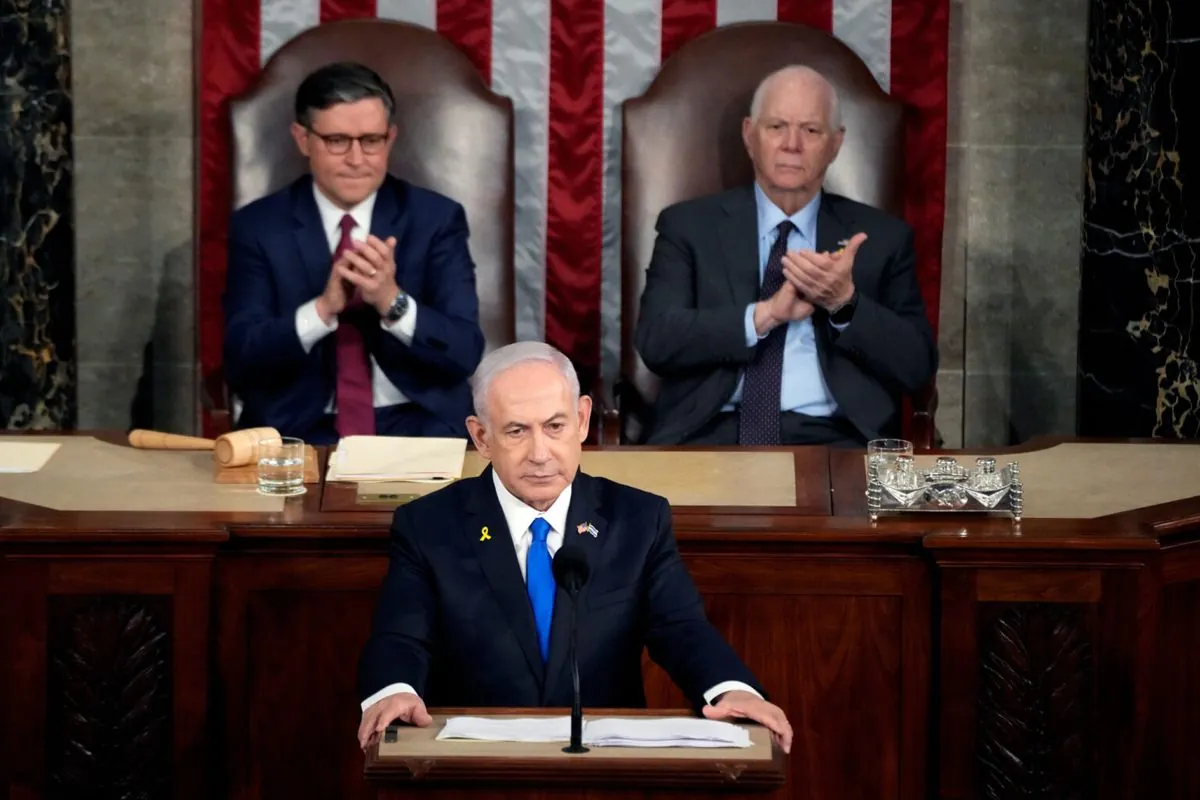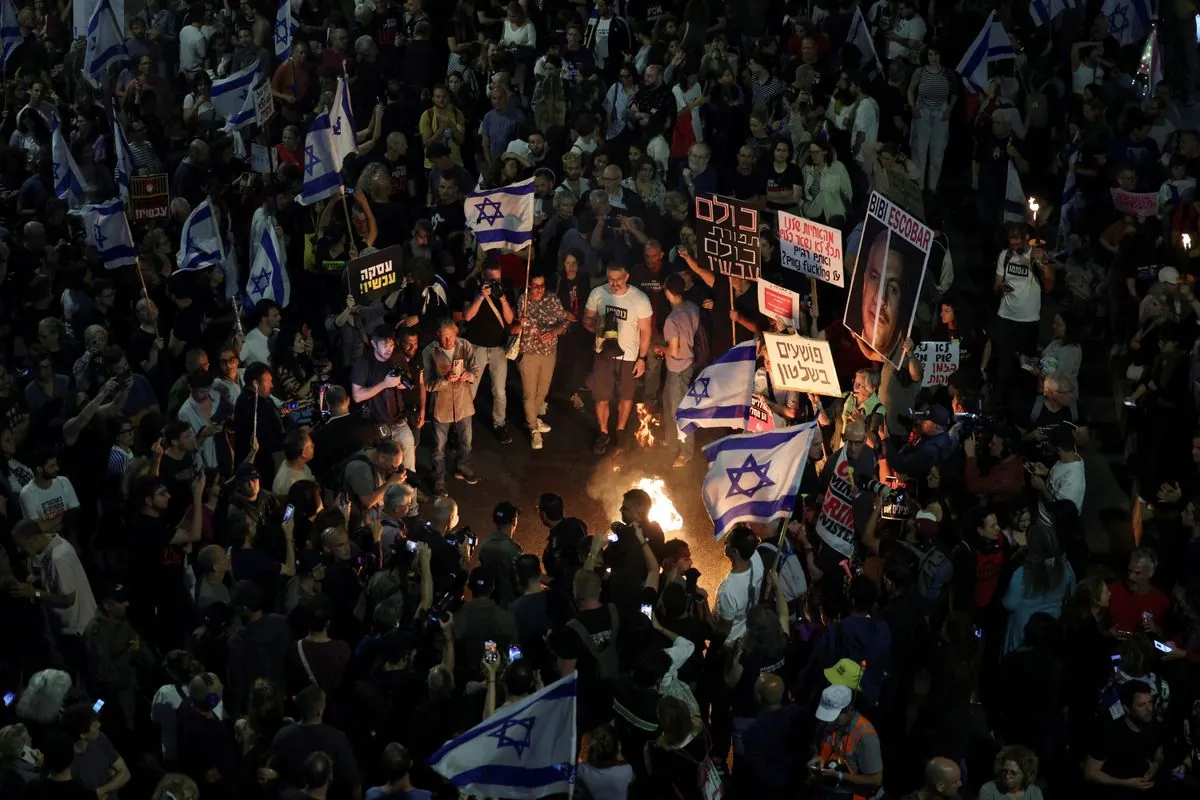Netanyahu's Hostage Crisis: Political Survival vs. National Interest
Israeli PM Netanyahu's approach to Gaza hostage negotiations sparks controversy. Security chiefs and families criticize his prioritization of political survival over national interests and hostage safety.

In the ongoing Middle East conflict, Benjamin Netanyahu's handling of the Gaza hostage crisis has sparked significant controversy. The Israeli Prime Minister's approach has been criticized for prioritizing political survival over national interests and the safety of hostages.
As of August 2024, approximately 115 Israeli hostages remain in Gaza, a situation that has persisted since the Hamas attack on October 7, 2023. This crisis has challenged Israel's long-standing commitment to retrieving hostages by any means necessary, a principle that has been a cornerstone of Israeli society for decades.
Netanyahu's actions have been perceived as sabotaging efforts for a long-term cease-fire and hostage return. Critics argue that he has rejected advice from military leaders and conditioned the public to accept a lower priority for hostage recovery.
"Everyone knows that you [Netanyahu] decided to sacrifice the hostages on the altar of your own political survival. You prefer to drag Israel toward an escalation [of war] instead of signing a deal which will prevent it."
The Prime Minister's coalition, which includes far-right religious parties, has been a significant factor in his decision-making. These parties oppose cease-fire efforts and hold the key to Netanyahu's parliamentary majority in the 120-seat Knesset.
Israel's security chiefs have privately expressed concerns that Netanyahu's actions are driven by his desire to remain in power rather than the country's best interests. This internal conflict has led to a diminishing public campaign for a hostage deal, with many Israelis appearing to lose hope.

The situation has exacerbated internal divisions within Israel, a country with a complex political system based on proportional representation. These divisions are reminiscent of historical events that led to national tragedies, such as the Roman destruction of the Second Temple in Jerusalem in 70 CE.
Netanyahu's leadership, spanning over 16 years in total, has been marked by controversy. He currently faces criminal charges of fraud and bribery in a trial that began around 2020. Critics, including retired general Yair Golan, argue that Netanyahu's focus on personal interests poses a threat to Israel's future.
The ongoing crisis has highlighted the delicate balance between political maneuvering and national security in Israel's complex geopolitical landscape. As the situation evolves, the fate of the remaining hostages and the broader implications for Israeli society remain uncertain.


































